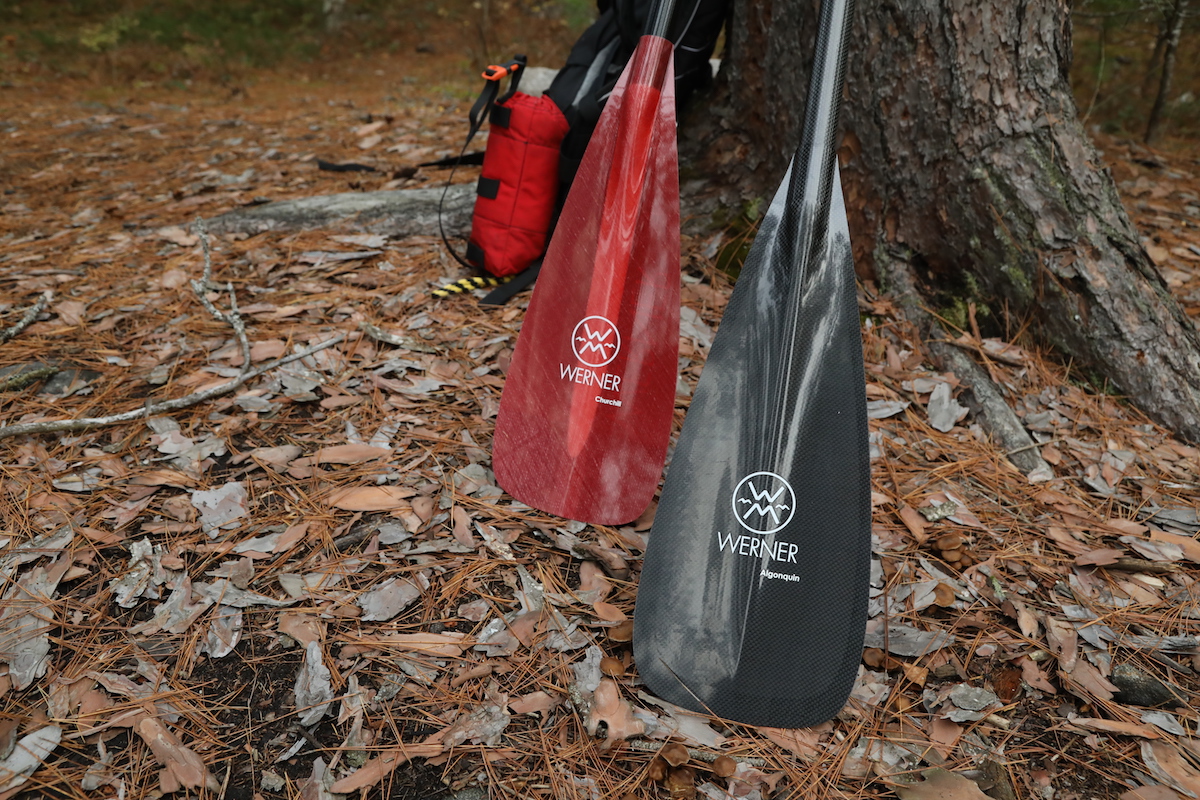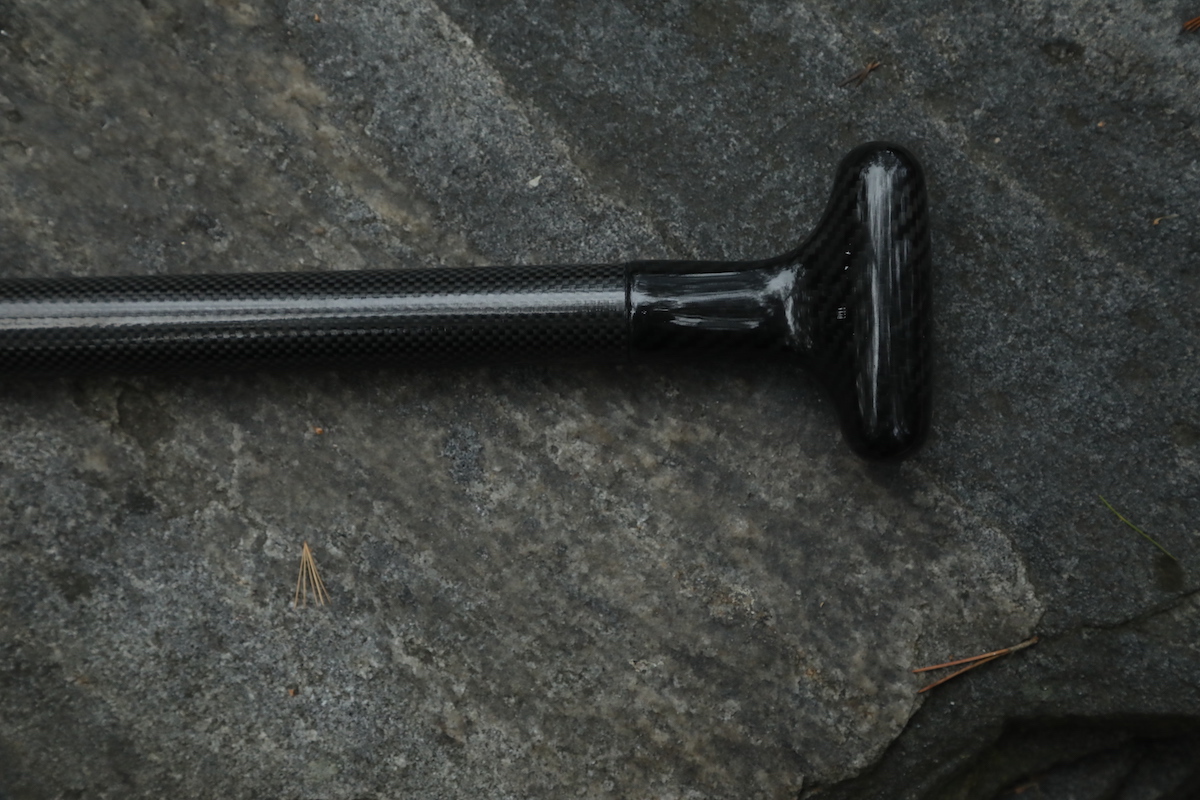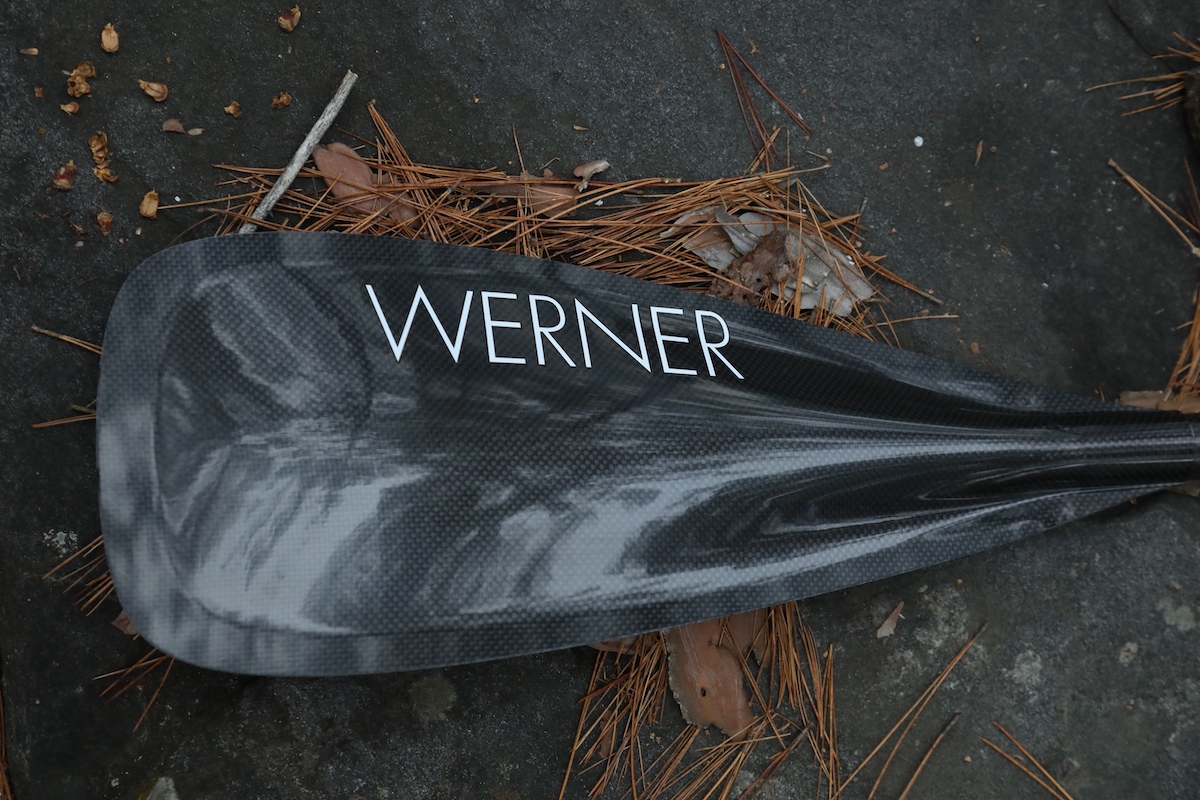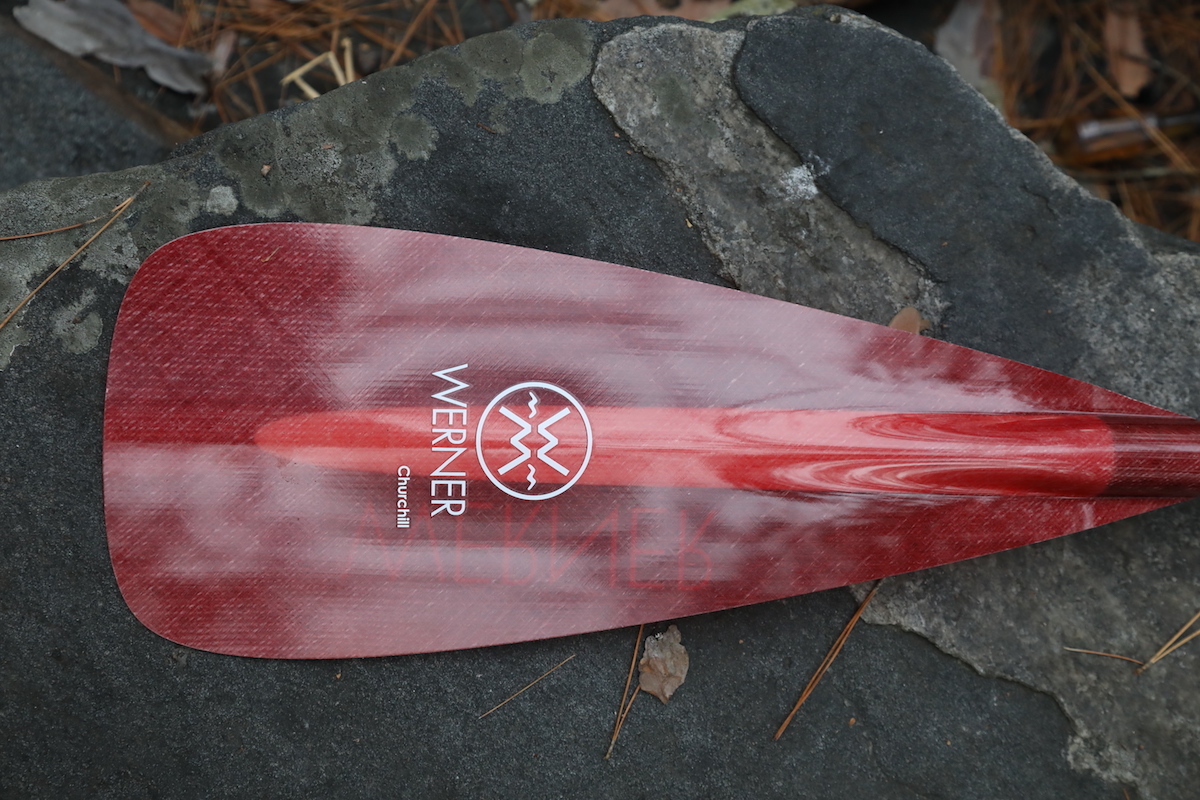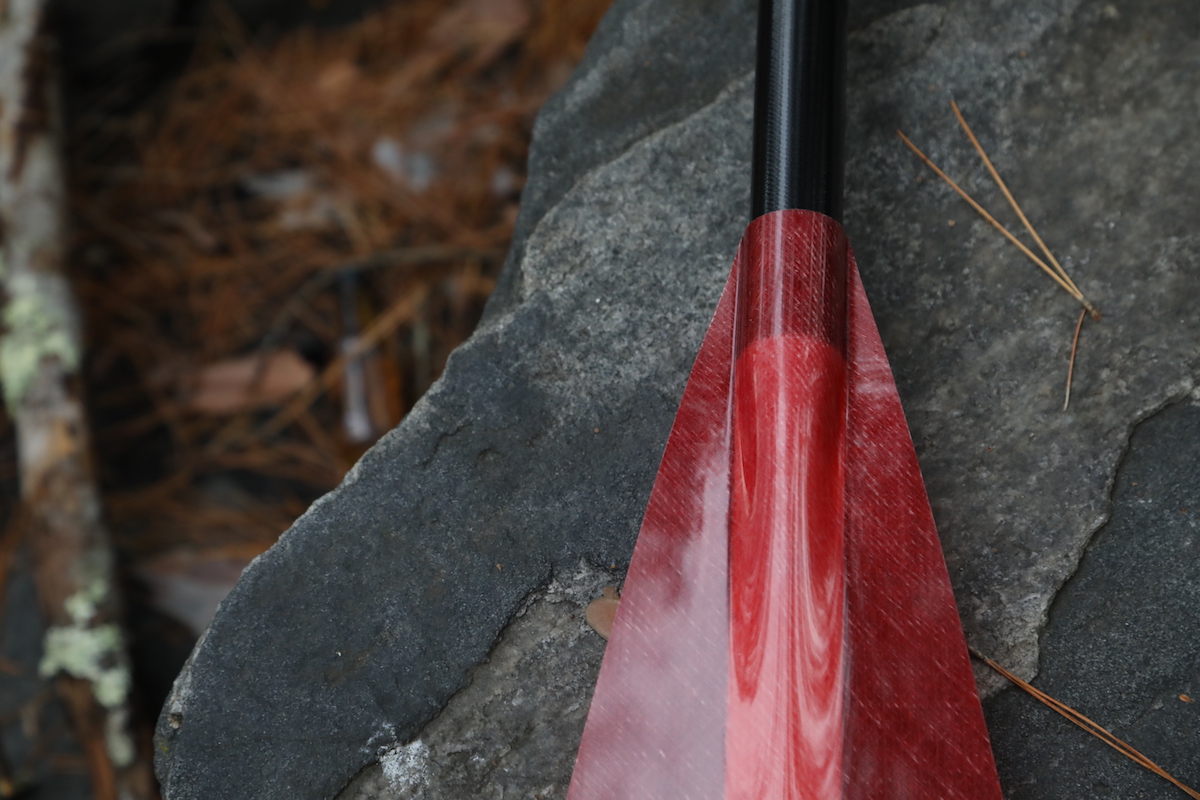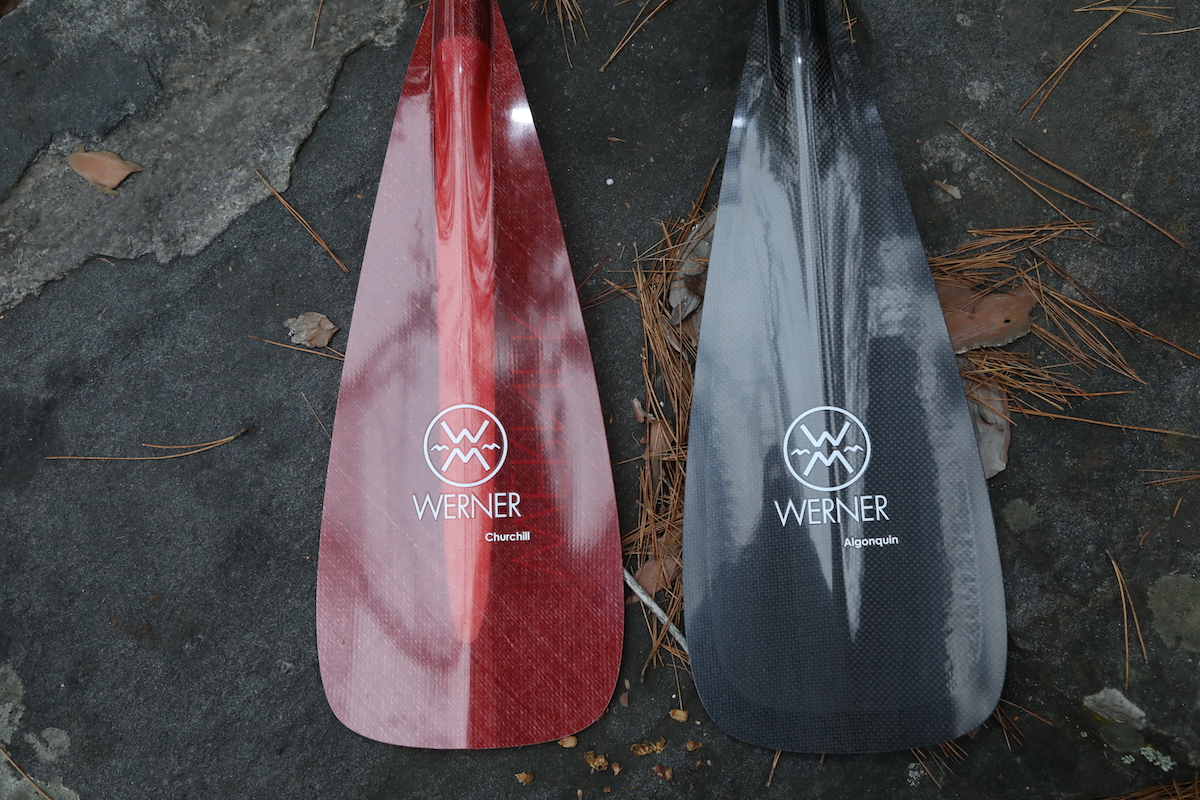Werner has built a rock-solid reputation by manufacturing bomb-proof paddles for decades using carbon fiber and fiberglass materials. New to their line up is the Algonquin, fabricated from solid carbon and the Churchill, a carbon and fiberglass combination. These touring-specific canoe paddles are real contenders for those that expect the best from their gear.
“It shows in fit and finish, in how the paddle feels on the water. High quality of workmanship not only means better performance and finish, but less manufacturing waste, and less broken paddles to be thrown away,” says Danny Mongno, marketing manager for Werner Paddles.
The Algonquin
Named in honour of one of Canada’s most famous provincial parks, the Algonquin is incredibly light, coming in at an honest 12 ounces. Don’t mistake this featherlight weight for a lack of strength or rigidity—we expect this paddle to handle more than its fair share of grunt work.
The T-grip is shaped to allow your fingers to be relaxed instead of splayed while paddling, which offers extra comfort during long days on the water. And, since the T-Grip is made of the same high-impact carbon as the rest of the paddle, it provides a smooth feel and you don’t need to worry about dinging it on the portage.
The blade shape is designed for more purchase power and will work for a canoe trip one weekend and a race the next. The 10-percent blade-to-shaft offset allows for smooth finishing strokes and comfortable repetitions. Danny Mongno of Werner states that the 10-degree angle is a nice compromise between forward stroke efficiency for many and paddlers who use finesse strokes and maneuvering strokes.
Werner has mastered the manufacturing process, using multiple layers of carbon to ensure enduring use during the beatdown of lengthy canoe trips. Mongno is sure that this paddle will take the fear out of those suspicious of carbon paddles.
“We always want to be the best compromise of weight and strength for the intended user. This paddle will be a real treat in hand and through the water, without striking fear into the heart of its user,” says Mongno.
Shaft: Straight
Pieces: 1 Piece
Weight: 333 g. / 11.75 oz.
Length: 48”-58”
Blade Length x Width: 18.75in x 7 in
Price: $289 USD / $374.99 CND
The Churchill
This single piece canoe paddle is a combination of a carbon-blended shaft and a fiberglass blade as part of Werner’s Premium series of canoe paddles. Werner produced this paddle to mimic the toughness of the Churchill River that flows for over a thousand miles through northern Canada. Weighing a total of 16 ounces, it is slightly different in weight from the Algonquin. Mongno says that the Churchill is a “very interesting paddle for those on the river. The wear and impact resistance of our Premium fiberglass will add a lot of confidence when hitting rocks in the shallows.”
The carbon-blended shaft connects with the neck of the blade in a way that maintains strength and reduces stress points. Mongno states that the design comes from years of experience working with SUP and whitewater paddles. The ability for the shaft to attach to the blade in this way allows for replacement of either the shaft or the blade.
The blade shape and materials used are part of Werner’s Premium series for impact resistance and translucence. Swing weight, strength, flex, wear resistance and, of course, cost are all factored in, says Mongno. “So many of our paddles do use different materials. However, the carbon and fiberglass materials themselves are consistent with what you would see throughout the Werner Paddles line up.” The rectangular shape and dihedral (the ridge running down the middle of the blade) allows for maximum catch and lessens the strain on your joints of repeated strokes.
Identical to the Algonquin, the Churchill blade is offset to 10 degrees to make finishing strokes that much easier to feather and link together.
Shaft: Straight
Pieces: 1 Piece
Weight: 454 g. / 16 oz.
Length: 48”-58”
Blade Length x Width: 18.75in x 7 in
Price: $189 USD / $244.99 CND



